
Eric J. Sherman, MD, examines the phase 3 COSMIC-311 trial with cabozantinib in radioiodine-refractory differentiated thyroid cancer.

Your AI-Trained Oncology Knowledge Connection!


Eric J. Sherman, MD, examines the phase 3 COSMIC-311 trial with cabozantinib in radioiodine-refractory differentiated thyroid cancer.
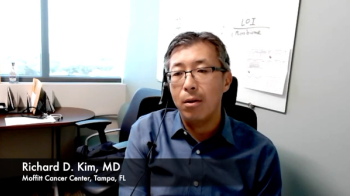
CancerNetwork® sat down with Richard D. Kim, MD, of the Moffitt Cancer Center at the 2021 ASCO Annual Meeting to talk about the many ways oncologists can approach treating hepatocellular carcinoma with combination regimens.

Moreau discussed conclusions drawn from part 2 of the CASSIOPEIA trial and the need for further follow-up with bortezomib, thalidomide and dexamethasone plus maintenance daratumumab in newly diagnosed multiple myeloma.
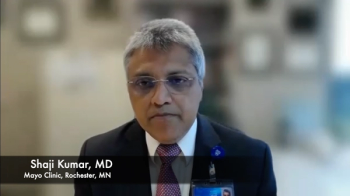
At EHA 2021, Shaji Kumar, MD, reviews the toxicity profile of daratumumab plus lenalidomide and dexamethasone for patients with transplant-ineligible multiple myeloma in the first-line setting.
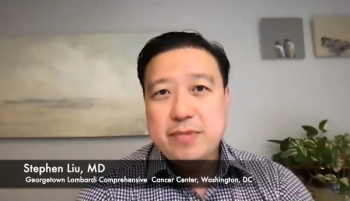
At ASCO 2021, Stephen Liu, MD, talked about treating patients with EGFR-mutant non–small cell lung cancer in the post-osimertinib setting with the combination of amivantamab and Lazertinib.

Robert A. Figlin, MD, details how his institution, Cedars-Sinai Cancer, is aiming to fully understand the cancer journey for those with genitourinary malignancies.

At ASCO 2021, Tanios S. Bekaii-Saab, MD, talked about some of his research in patients with IDH1/2–positive cholangiocarcinoma presented at the meeting.

At ASCO 2021, Shaji Kumar, MD, talked about the impact of adding daratumumab maintenance to therapy for patients with newly diagnosed multiple myeloma in the CASSIOPEIA trial.

Eric J. Sherman, MD, highlights trends he observed with immunotherapy in the head and neck cancer space.

During a discussion at ASCO 2021, Mounzer Agha, MD, talked about mitigation strategies used by the investigators from the CARTITUDE-2 trial to prevent cognitive and neuro-movement disorders commonly associated with CAR T-cell therapy.
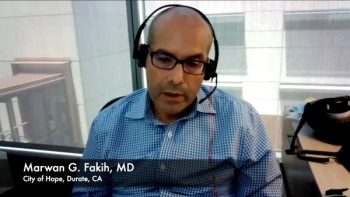
CancerNetwork® sat down with Marwan G. Fakih, MD, of City of Hope at the 2021 ASCO Annual Meeting to talk about a potential multidisciplinary treatment approach to colorectal cancer with regorafenib/nivolumab.

Robert A. Figlin, MD, highlights toxicities that patients with renal cell carcinoma experience while on cabozantinib.

Moreau detailed the patient characteristics of those enrolled on the CASSIOPEIA trial, which investigating bortezomib, thalidomide and dexamethasone plus daratumumab in patients with newly diagnosed multiple myeloma.

Eric J. Sherman, MD, of Memorial Sloan Kettering Cancer Center highlights research on adjuvant capecitabine in nasopharynx cancer.

At EHA 2021, Shaji Kumar, MD, reflects on the significance of 5-year data from the MAIA study of a daratumumab combination in patients with multiple myeloma.

Agha emphasized that the annual conference allows investigators to set the foundation for what’s to come in the treatment of multiple myeloma and other hematologic malignancies.
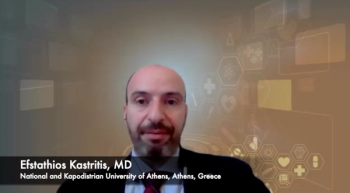
Hematologic responses improved for patients treated with daratumumab plus VCd versus VCd alone in the ANDROMEDA trial.

Moreau discussed the implications of the second part of the CASSIOPEIA trial at the 2021 ASCO Annual Meeting.

At the 2021 American Society of Clinical Oncology Annual Meeting, CancerNetwork® spoke with Tanios S. Bekaii-Saab, MD, to discuss recent updates in the treatment of gastrointestinal malignancies.
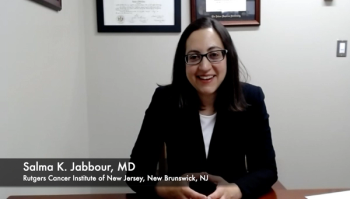
CancerNetwork® sat down with Salma Jabbour, MD, of Rutgers Cancer Institute, at 2021 ASCO to talk about what she believed was the most interesting and impactful study to come out of the meeting.

At EHA 2021, Shaji Kumar, MD, reflects on the significance of 5-year data from the MAIA study of daratumumab plus lenalidomide/dexamethasone in patients with newly diagnosed multiple myeloma.
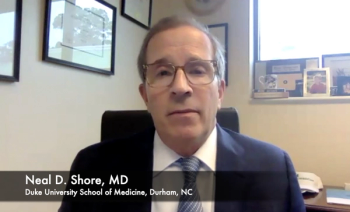
During a discussion at 2021 ASCO, Neal D. Shore, MD, said he was most excited to see data from the phase 3 VISION trial of lutetium-177-PSMA-617 in metastatic castration-resistant prostate cancer.

Ferdinandos Skoulidis, MD, PhD, MRCP, details what he was most excited to learn about at 2021 ASCO.

Kathleen Moore, MD, discusses findings compiled from 3 clinical trials of niraparib in patients with ovarian cancer.

Paolo Ghia, MD, PhD, discussed data from the CAPTIVATE trial of ibrutinib/venetoclax in the frontline setting for chronic lymphocytic leukemia.

At the 2021 American Society of Clinical Oncology Annual Meeting, CancerNetwork® spoke with Tanios S. Bekaii-Saab, MD, about genomic drivers in cholangiocarcinoma.
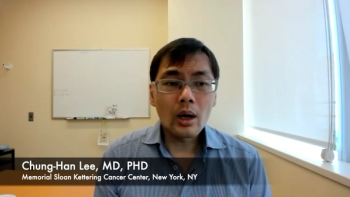
At ASCO 2021, Chung-Han Lee, MD, PhD, discussed an ongoing trial looking at pembrolizumab plus lenvatinib as frontline therapy for non–clear cell renal cell carcinoma.
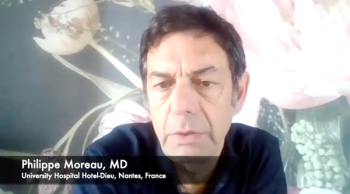
Moreau highlighted important updates in the field of multiple myeloma, including the CARTITUDE-1 trial, which yielded promising results with ciltacabtagene autoleucel and read out at the 2021 ASCO Annual Meeting.

Shaji Kumar, MD, talks about 5-year follow-up data regarding the use of daratumumab, lenalidomide, and dexamethasone in patients with multiple myeloma who are not eligible for transplant.
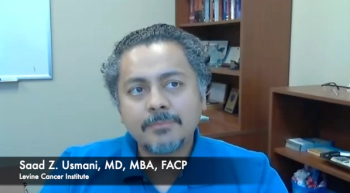
Usmani highlighted the FORTE study as one of the trials investigating the high-risk cohort of patients.